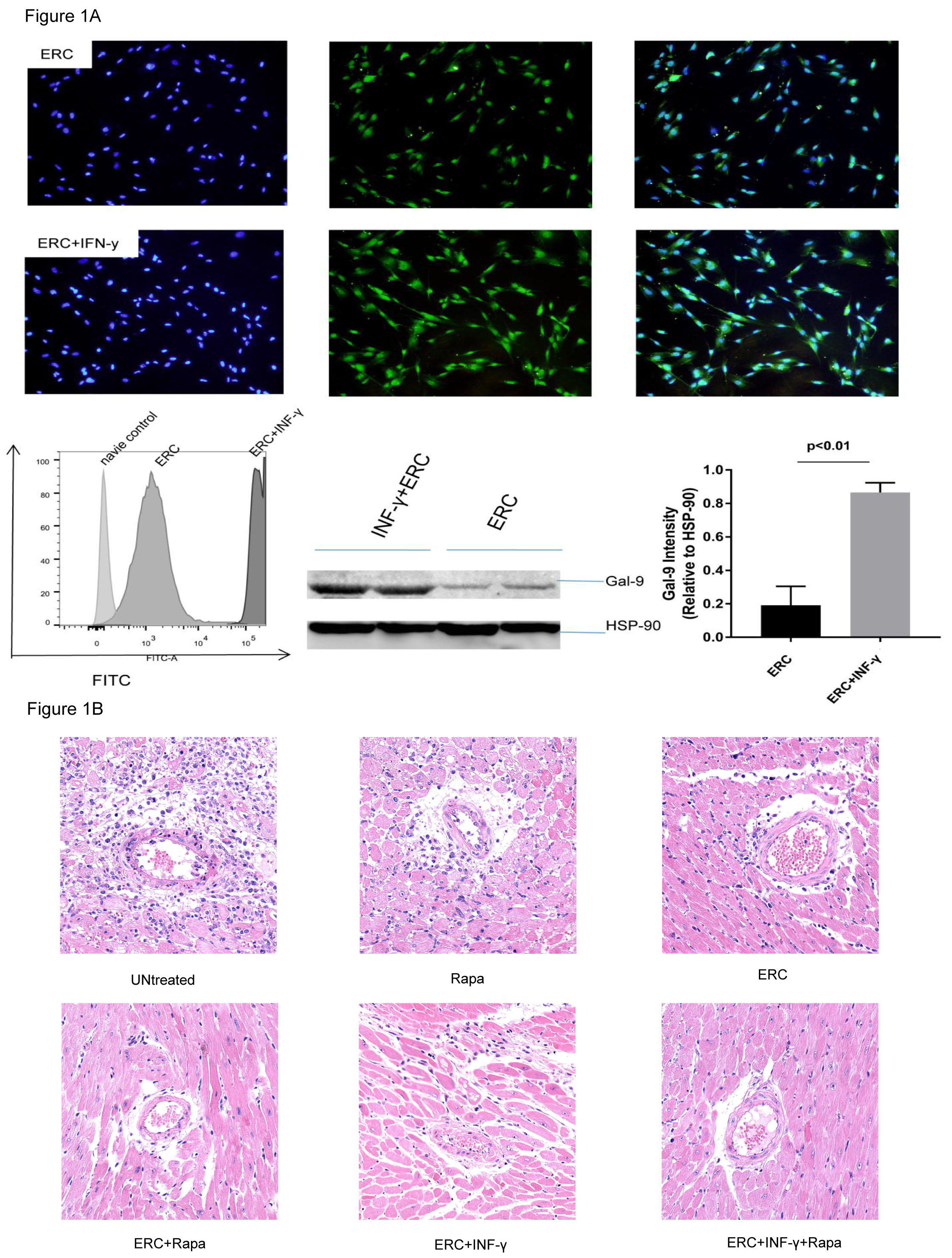Gal9/Tim-3 Pathway was Required for Endometrial Stem Cells to Induce Peripheral Tolerance of Cardiac Allograft
1Tianjin Medical University General Hospital, Tianjin, China, 2Massachusetts General Hospital, Boston, MA
Meeting: 2020 American Transplant Congress
Abstract number: D-297
Keywords: Heart/lung transplantation, Indirect pathway, Stem cells, Tolerance
Session Information
Session Name: Poster Session D: Cellular Therapies, Tissue Engineering / Regenerative Medicine
Session Type: Poster Session
Date: Saturday, May 30, 2020
Session Time: 3:15pm-4:00pm
 Presentation Time: 3:30pm-4:00pm
Presentation Time: 3:30pm-4:00pm
Location: Virtual
*Purpose: The existing immunosuppressants seem to have little effect on Cardiac Allograft Vasculopathy but with obvious side effects. ERCs (Endometrial stem Cells), which are mesenchymal-like stem cells, identified as a new candidate for immune regulation, were collected from menstrual blood of volunteer human. Due to lacking expression of MHC I, MHC II and costimulatory molecules, resulting in its low immunogenicity and well accepted by mice. Moreover, it has the advantages of reusing human waste, wide source, non-invasive collection, easy to large-scale expansion and so on. Previous studies have shown that stem cell therapy based on ERCs can mediate the immune tolerance of cardiac grafts, but the mechanisms concerned are still limited. Tim-3 was expressed on the surface of CD8+, Th1, Th17 and MDSCs. And its ligand Gal-9, found in many regulatory cells, can induce the apoptosis of Tim3+ cells. Therefor we would like to detect whether gal-9 is expressed on ERCs and whether INF-γ+ERCs+Rapa therapy could promote the formation of immune tolerance in heart transplant mice.
*Methods: we detected gal-9 expression on ERCs, and then co-culture INF-γ+ ERC, ERC and lactose (gal-9 blocker)+ERC with activated spleen cells respectively (n=3). Next, we performed BALB/c to C57 heart transplantation and gave different treatments (n=6, figure 1B). ERCs injected was at 10^6 cells per mouse 24 hours after transplantation.
*Results: In vitro, multiple results revealed that ERCs expressed Gal-9 and can be highly improved by INF-γ stimulation (Figure 1A). Co-culture experiments indicated that INF-γ+ERC could reduce CD8+, Th1, Th17 proliferation and INF-γ, IL-17 secretion, and increase the proportion of Tregs. Next, we perfomed the transplant and found that INF-γ+ERCs+Rapa group had lower number of CD8+, Th1, and Th17 cells, lower levels of circulating donor-specific Ig-G and Ig-M antibodies, and higher levels of Tregs than other groups. Concurrently, RNA expression of INF-γ, IL-17, T-bet, and RORyt in allo-heart tissue is also reduced in recipients treated with INF-γ+ERCs+Rapa. Pathology results also confirmed that the INF-γ+ERCs+Rapa group had less inflammatory cell infiltration (Figure 1B) and Ig-M deposition.
*Conclusions: Gal-9 is expressed on ERCs and can be significantly enhanced by INF-γ stimulation. ERCs with Gal-9 high expression is helpful to reduce the occurrence of rejection by affecting Th1/Th2, Th17/Treg immune-deviations and B cell functions, and promote the formation of immune tolerance.
To cite this abstract in AMA style:
Zhao Y, Hu Y, Yu D, Li X, Jin W, Qin Y, Kong D, Wang H, Alessandrini A, Wang H. Gal9/Tim-3 Pathway was Required for Endometrial Stem Cells to Induce Peripheral Tolerance of Cardiac Allograft [abstract]. Am J Transplant. 2020; 20 (suppl 3). https://atcmeetingabstracts.com/abstract/gal9-tim-3-pathway-was-required-for-endometrial-stem-cells-to-induce-peripheral-tolerance-of-cardiac-allograft/. Accessed February 19, 2026.« Back to 2020 American Transplant Congress

